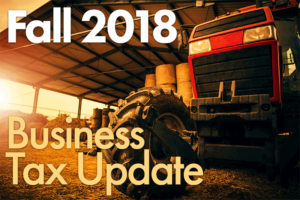Many residents across BC were impacted by the wildfires, including Stewart and his family. We’ve had a few clients ask us about the wildfire financial assistance received from Red Cross, ESS, Service Canada, insurance, etc. and whether any of it needs to be reported on your tax returns. We cover some of the basic situations in this article but if you have any questions on more complex situations, please give us a call or email and we would be happy to talk with you.
Financial Assistance to Individuals/Families
1. Red Cross
Financial assistance provided by the BC government administered by the Red Cross was given to all residents affected by the BC wildfires and was not based on income level or employment status. The assistance was to help with basic needs such as food, clothing, lodging and essential goods and services. Subdivision D of the Income Tax Act, which outlines “Other Sources of Income” does not include this type of financial assistance and is therefore NOT included as income.
2. Emergency Social Services (ESS)
Many wildfire evacuees also received financial assistance from the BC government’s ESS program. The assistance was to help evacuees with food and lodging. Subdivision D of the Income Tax Act, which outlines “Other Sources of Income” does not include this type of financial assistance and is therefore NOT included as income.
3. Insurance Proceeds
Evacuated homeowners may have received insurance proceeds from their home owner’s insurance policy. This may include covering living expenses while evacuated, the replacement of appliances, and/or repairs to the home for smoke or fire damage. These insurance proceeds are generally NOT included as income.
4. Employment Insurance (EI) Benefits
Employees may have received EI benefits from Service Canada due to loss of employment, whether temporary or permanent, caused by the wildfire evacuations. These benefits generally ARE included as income and the recipient of these benefits should receive a T4E slip from Service Canada to report on their tax return.
5. Financial Assistance from Employers
Employers may have provided financial assistance directly to employees to assist with personal losses or damages as a result of a wildfires. As long as the assistance was received by the recipient in their capacity as an individual and not as an employee, the financial assistance would be NOT included as income. However, if the assistance was paid to the recipient in their capacity as an employee, the financial assistance IS included as income. More details around these rules can be found on CRA’s website here.
Financial Assistance to Businesses
1. Red Cross
Red Cross has also administered the BC government’s financial assistance program to businesses affected by the BC wildfires. This financial assistance is geared towards assisting businesses in recovering from the impact of the wildfires through compensating for income loss or increased expenses, the amounts received ARE included as business income.
2. Insurance Proceeds
Businesses may have received insurance proceeds from their business insurance policy to compensate for loss of income, loss of inventory, additional expenses, and/or replacement of capital assets. Generally speaking, the insurance proceeds ARE included as business income. However, keep in mind that the accounting for these type of transactions can be complicated and there may be certain income tax elections available to defer taxation. Stolz CPA is available to advise and assist with the accounting and taxation of these matters.










